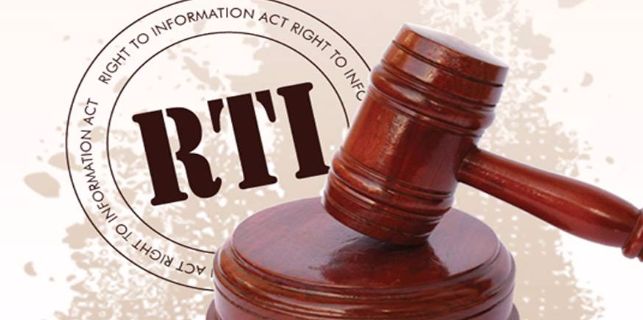Right To Information
Jul 02, 2019 • 29 views
Article 19 of the Indian Constitution provides freedom of speech {1(a)}, assembly {1(b)}, association {1(c)}, movement {1(d)}, residence {1(e)}, and profession {1(g)}. Right to information is a part of our Fundamental Rights to the freedom of speech (Article-19(1)) and expression as well as right to life and liberty (Article-21). The Fundamental Right to freedom of speech and expression is meaningless unless we have right to information. The right to information provides us the information to express and form opinions of the concerned subject.
Right to Information Act was passed on 15th June, 2005 and came into force on 13th October 2005. It is expected to usher in a new era in the process of governance and performance in the corruption ridden Indian Polity. It has the widest reach covering Central and State Governments, Panchayati Raj institutions, local bodies and government funded NGOs. Even the judiciary has been put under the purview of this Act. On these lines state information commissions has been set up at Central and State levels. The RTI Act 2005 seeks to override the Official Secrets Act 1923 and replace the old Freedom to Information Act. This Act provides 30 days deadline for providing information. However, the deadline is 48 hours, if information concerns life and liberty of a person. All the citizens are entitled to any kind of information.

The procedure for securing information has been evidently laid down. First appeal has to be made to the superior of Public Information Officer referred as Appellate Authority. In case the information is not forthcoming, one can appeal to the Information Commission. To make the RTI Act effective, penalty for delay in providing information without reasonable cause shall be Rs 250 for each day up to the maximum amount of Rs 25000. Thus, the most important feature of the RTI is the independent appeal mechanism.
The RTI Act provides for access to extensive information with minimum exemptions. There is no denying fact that the benefits of growth would flow to all sections, eliminate corruption, and improve the much needed quality of governance. It is hoped that the concerns of the common man will be addressed by the government in a fair and just manner. Therefore, access to RTI Act would strengthen Indian democracy.
However as a coin has two facets, similarly every thing is not so rosy about it. Though it is one of the most people friendly legislation. But road to accessing information remains difficult. 40% of rural information seekers complain of harassment. Over 30% of the admitted Public Information Officers do not know the provision of this Act. The government itself made a clear intention to amend the RTI Act and has already mooted amendments to exclude file notings from disclosure and maintain anonymity for officials. Government also has excluded Central Bureau of Investigation (CBI) from the purview of the RTI Act. It is a crystal clear indication that the government does not want to lose hold over the premier investigating agency.
RTI Act 2005 is a major step forward towards openness and transparency in governance. Democracy requires an informed citizenry because only an enlightened citizen can make a force that democracy is. It is expected to go a long way in changing the substance and quality of our democracy.
